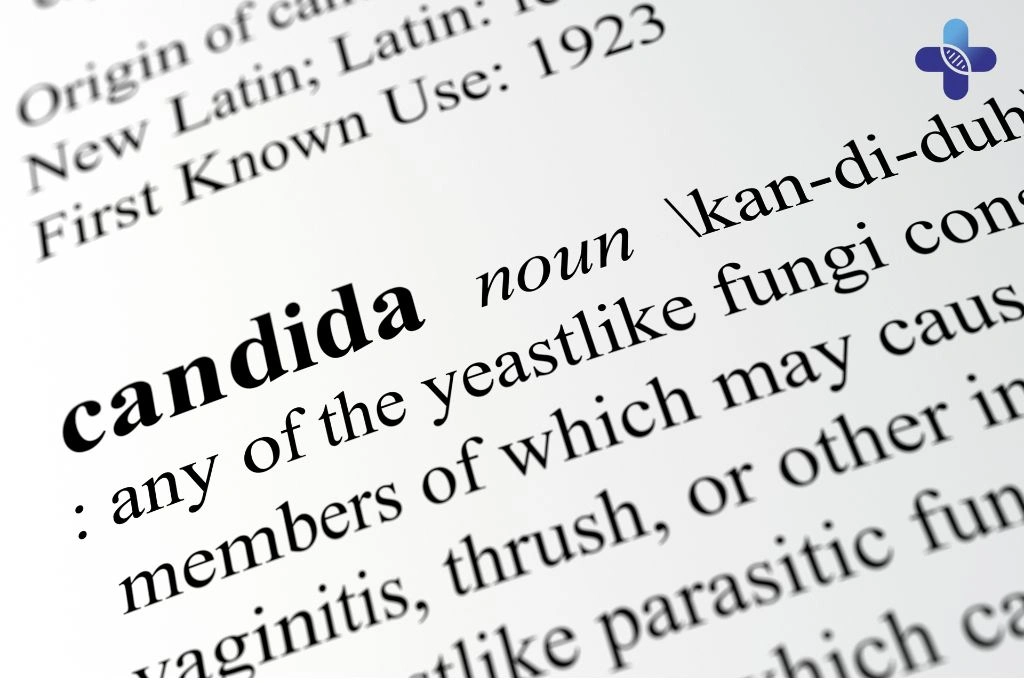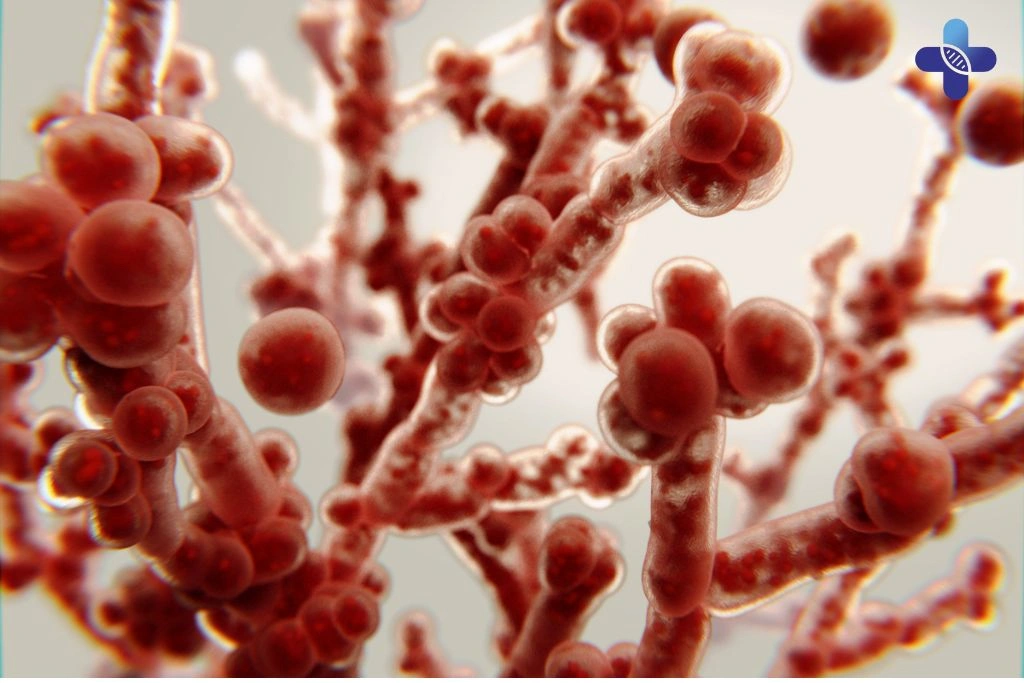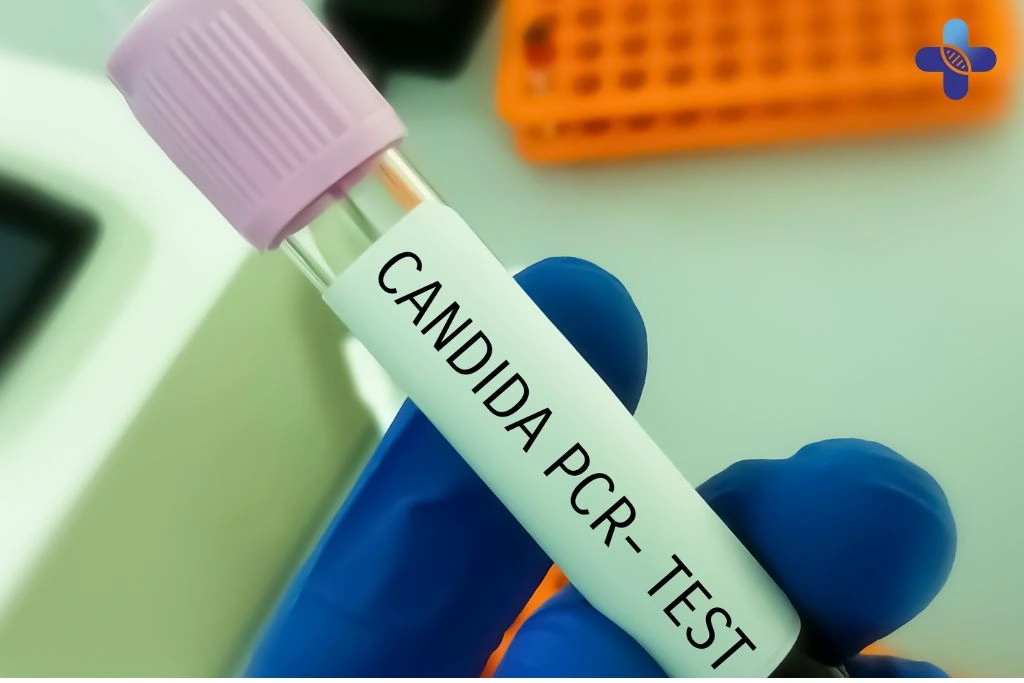Candida is a type of fungus naturally found in the human body. However, under certain conditions, it can overgrow and lead to infections. As part of the list of STDs in Bali, Candida infections can occur in the genital area, often mistaken for other sexually transmitted infections. In Bali’s humid climate, Candida infections can be more common, especially among travelers and residents who are frequently exposed to moisture and heat. Understanding the symptoms and treatments available can help prevent complications and ensure quick recovery. Life Everyouth Clinic Bali provides expert diagnosis and treatment options to help manage Candida infections effectively.

Candida in Bali: Understanding Its Causes, Recognizing Symptoms, and Finding the Right Treatment
Trichomonas is a sexually transmitted infection (STI) caused by the parasite Trichomonas vaginalis, primarily affecting the urogenital tract and leading to irritation or inflammation. It is commonly transmitted through unprotected vaginal intercourse and often goes undiagnosed due to its asymptomatic nature in many individuals. While not always severe, untreated Trichomonas can increase the risk of pelvic inflammatory disease (PID), HIV transmission, and pregnancy complications. Both men and women can carry the infection, with symptoms being more noticeable in women. Regular STI testing is essential for early detection and effective treatment, particularly for those with multiple sexual partners.
What is Candida?
Candida is a yeast-like fungus that lives on the skin, mouth, and digestive tract. When the immune system is weakened, or there are imbalances in the body, Candida can multiply uncontrollably, leading to infections such as oral thrush, vaginal yeast infections, and skin rashes.
Common Causes of Candida Overgrowth in Bali
High Humidity: The Ideal Environment for Candida Growth
Bali’s tropical climate, characterized by high humidity, provides a perfect breeding ground for fungi like Candida. The combination of warm temperatures and moisture allows Candida to thrive, especially in areas that are frequently damp, such as underarms and groin folds. This makes people more vulnerable to Candida infections, particularly during the rainy season.
Sweating and Damp Clothing: A Catalyst for Infection
Frequent sweating in Bali’s humid weather can lead to moisture accumulation on the skin. When sweat mixes with moisture from damp clothes, it creates an environment that encourages Candida growth. Skin folds, such as the armpits, inner thighs, and under breasts, are especially prone to fungal infections when not kept dry and clean.
Dietary Changes: The Impact of Sugar and Alcohol
A diet high in sugar and processed foods can promote Candida overgrowth. Sugars serve as food for Candida, helping it to grow and multiply. Alcohol, which is common in Bali’s social culture, can also contribute to Candida growth by suppressing the immune system and disrupting the balance of gut bacteria. A diet rich in fruits, vegetables, and whole foods can help prevent Candida overgrowth.
Weakened Immune System: A Risk Factor
A weakened immune system can make the body more susceptible to infections, including Candida. Stress, lack of sleep, and illnesses that compromise the immune system create a perfect storm for Candida to grow unchecked. Living in Bali can sometimes increase stress levels due to the tropical lifestyle and environmental factors, which, in turn, can increase the risk of infection.
Antibiotic Use: Disrupting the Balance of Good Bacteria
While antibiotics are necessary for treating bacterial infections, they can also have unintended consequences. Excessive use of antibiotics disrupts the balance of beneficial bacteria in the body, especially in the gut. This disruption allows Candida, which is naturally present in small amounts, to grow uncontrollably, leading to infections. If you’ve recently been on antibiotics, maintaining good hygiene and a healthy diet can help prevent Candida from flourishing.

Symptoms of Candida Infection
Oral Thrush: White Patches and Difficulty Swallowing
Oral thrush is one of the most common symptoms of a Candida infection. It occurs when the fungus overgrows in the mouth, leading to white patches on the tongue, inner cheeks, gums, or the roof of the mouth. Individuals with oral thrush may experience soreness, a burning sensation, or difficulty swallowing. This condition is particularly common in people with weakened immune systems or those who have recently used antibiotics.
Vaginal Yeast Infection: Itching and Discomfort
A vaginal yeast infection is another common form of Candida overgrowth. Symptoms include intense itching, irritation, and a burning sensation in the vaginal area. A thick, white discharge resembling cottage cheese may also be present. This condition can cause significant discomfort and affect a person’s daily activities, and is more common in women due to factors such as hormonal changes, pregnancy, or the use of antibiotics.
Skin and Nail Infections: Red, Itchy Rashes
Candida infections can also affect the skin, leading to red, itchy rashes. These rashes are commonly found in warm, moist areas of the body, such as underarms, groin, and between the toes. Skin folds provide an ideal environment for Candida to thrive, making it crucial to keep these areas dry and clean. Nail infections may also occur, causing thickened, discolored nails that may separate from the nail bed.
Digestive Issues: Bloating and Gas
Candida can cause digestive disturbances, especially when it overgrows in the gut. Symptoms such as bloating, gas, constipation, and diarrhea are common in individuals suffering from Candida infections. The overgrowth of Candida disrupts the balance of gut bacteria, which can lead to an imbalance in digestion and nutrient absorption. This condition may also contribute to more severe gastrointestinal symptoms like cramping or abdominal discomfort.
Treatment Options for Candida in Bali
Antifungal Medications: Effective Treatment for Candida Infections
Antifungal medications are the most common and effective treatment for Candida infections. These medications are available both over-the-counter and by prescription, and come in the form of creams, ointments, or oral pills. For skin and vaginal infections, topical antifungal creams may be used to reduce symptoms, while oral antifungal pills are often prescribed for more severe cases. It is essential to follow the full course of treatment as directed by a healthcare professional to ensure the infection is completely eradicated.
Probiotics and Diet Adjustments: Restoring Balance to Gut Health
An important aspect of Candida treatment involves restoring the natural balance of bacteria in the gut. Probiotics, which are beneficial bacteria, can help by outcompeting Candida and reducing its overgrowth. Consuming probiotic-rich foods such as yogurt, kefir, and fermented vegetables can support gut health. Additionally, dietary changes play a key role in managing Candida infections. Reducing sugar and refined carbohydrate intake is essential, as these foods promote Candida growth. Opting for a balanced diet of whole foods, vegetables, and lean proteins can help maintain a healthy microbial balance.
Proper Hygiene: Keeping Skin Dry and Clean
Maintaining proper hygiene is crucial in preventing and managing Candida infections, particularly in tropical climates like Bali. Keeping the skin dry and clean is vital to reduce moisture that encourages Candida growth. After sweating or swimming, it’s essential to change into dry clothes promptly. Using antifungal powder in areas prone to moisture, such as underarms and groin, can also help prevent infection. Additionally, wearing loose, breathable clothing allows the skin to stay dry and minimizes friction, which can irritate the skin and exacerbate Candida infections.
Medical Consultation: Seeking Professional Treatment
If symptoms persist or worsen despite home treatment, it’s important to seek medical consultation. A medical clinic in Bali, like Life Everyouth Clinic, can provide a proper diagnosis and tailored treatment plan. A healthcare provider may perform tests to confirm the presence of Candida and determine the best course of action. Early diagnosis and treatment can prevent the infection from spreading or becoming more severe, ensuring a quicker and more effective recovery.

Tips for Preventing Candida Infections
Wear Breathable, Loose-Fitting Clothing
One of the best ways to prevent Candida infections is by wearing breathable, loose-fitting clothing. Tight or synthetic fabrics trap heat and moisture, creating an ideal environment for Candida to thrive. Opting for natural fabrics like cotton allows air circulation, helping to keep your skin dry and reduce the risk of infection. This is especially important in a humid climate like Bali, where excess moisture can encourage fungal growth in skin folds and areas prone to sweating.
Maintain Proper Hygiene, Especially in Humid Environments
Proper hygiene is essential in preventing Candida infections, particularly in tropical climates. In Bali’s warm and humid conditions, sweat and moisture can build up on the skin, making it a perfect breeding ground for fungi. Regularly showering and ensuring that all areas of the body are thoroughly dried—especially skin folds—can significantly reduce the chances of developing Candida infections. Using mild, non-irritating soaps and avoiding harsh chemicals can also help protect the skin’s natural balance.
Avoid Excessive Sugar and Processed Foods
Candida thrives on sugar, which provides it with the nutrients it needs to grow and multiply. By avoiding excessive sugar intake and processed foods, you can reduce the chances of Candida overgrowth. A diet rich in whole foods, including vegetables, whole grains, and lean proteins, can help maintain a healthy balance of gut bacteria. Reducing alcohol consumption is also beneficial, as alcohol can weaken the immune system and disrupt the balance of good bacteria in the gut.
Take Probiotics to Maintain a Healthy Gut Microbiome
Probiotics play a crucial role in maintaining a healthy gut microbiome, which is essential for preventing Candida infections. These beneficial bacteria help to keep Candida in check by outcompeting harmful pathogens. Incorporating probiotic-rich foods like yogurt, kefir, and fermented vegetables into your diet can help restore balance to your gut and improve digestion. In some cases, taking probiotic supplements may be recommended to support gut health, especially after a course of antibiotics.
Seek Medical Attention at a Bali Medical Clinic If Symptoms Persist
If symptoms of Candida infection persist or worsen despite self-care efforts, it’s important to seek professional medical attention. A visit to a Bali medical clinic, such as Life Everyouth Clinic, can provide accurate STD testing in Bali, diagnosis and targeted treatment for Candida. A healthcare provider can recommend antifungal treatments or perform necessary tests to determine the underlying cause of the infection, ensuring prompt and effective care. Early intervention can prevent the infection from becoming more severe or spreading to other areas of the body.

Conclusion of Candida in Bali: Causes, Symptoms & Treatment
Candida infections are common in tropical climates like Bali, but they can be effectively managed with proper treatment and preventive measures. If you experience persistent symptoms, visit Life Everyouth Clinic Bali for expert care and guidance.
Frequently Asked Questions (FAQs) of Candida in Bali: Causes, Symptoms & Treatment
Is Candida infection contagious?
No, Candida infections are not typically contagious. Unlike bacterial or viral infections, Candida overgrowth usually occurs as a result of internal imbalances in the body, such as weakened immunity, dietary factors, or environmental triggers. While it can affect various parts of the body, it is not spread through direct contact with an infected person. Therefore, you do not need to worry about contracting Candida from another person.
Can I treat Candida naturally?
Some natural remedies can indeed help manage mild Candida infections. Probiotics are beneficial for restoring the balance of good bacteria in the gut, and dietary changes—such as reducing sugar intake—can help prevent Candida overgrowth. However, while natural treatments can provide relief, they may not be sufficient for more severe or persistent infections. In such cases, medical treatment, including antifungal medications, may be necessary to effectively eliminate the infection and prevent further complications.
How long does a Candida infection last?
The duration of a Candida infection depends on several factors, including the severity of the infection and the chosen treatment approach. With proper medical treatment, most Candida infections will show improvement within a few days to a week. However, more chronic or severe cases may take longer to resolve. It is crucial to follow the prescribed treatment plan until the infection is fully treated, even if symptoms seem to subside, to ensure complete recovery and prevent recurrence.
Can the humid Bali climate increase my risk of Candida?
Yes, the warm and humid environment in Bali can increase the risk of Candida overgrowth. The tropical climate provides ideal conditions for fungal growth, especially in areas of the body that are frequently exposed to moisture, such as underarms, groin, and between toes. The combination of high humidity and perspiration creates an environment where Candida thrives, making individuals more susceptible to infections. Being mindful of hygiene and taking preventive measures, like wearing breathable clothing, can help mitigate this risk.
Should I see a doctor for a Candida infection?
If you notice persistent or worsening symptoms of a Candida infection, it is highly recommended to consult a healthcare professional for proper diagnosis and treatment. While mild Candida infections can sometimes be managed with over-the-counter remedies or natural treatments, a doctor will be able to assess the severity of the infection and prescribe the most appropriate treatment. Seeking medical attention ensures that the infection is properly diagnosed and treated, preventing it from becoming a more serious or recurrent issue.
Does Candida cause digestive problems?
Yes, an overgrowth of Candida in the gut can lead to digestive issues such as bloating, gas, irregular bowel movements, and even diarrhea. Candida imbalance in the gut disrupts the natural balance of gut bacteria, which is essential for digestion and nutrient absorption. Individuals with Candida overgrowth may also experience symptoms like food sensitivities, fatigue, or brain fog. Addressing the gut imbalance through dietary changes, probiotics, and antifungal treatments can help alleviate these digestive problems.
Can antibiotics trigger Candida overgrowth?
Yes, antibiotics can trigger Candida overgrowth. While antibiotics are effective in treating bacterial infections, they can also disrupt the balance of bacteria in the gut, killing off both harmful and beneficial bacteria. This disruption creates an environment where Candida can thrive unchecked, leading to an overgrowth. If you have recently been prescribed antibiotics and are experiencing Candida symptoms, it’s essential to seek medical advice. In many cases, probiotics and antifungal treatments can help restore balance and prevent Candida from spreading.
Is Candida infection common among travelers?
Yes, Candida infections can be more common among travelers, especially those visiting tropical climates like Bali. Changes in diet, stress, and environmental factors—such as humidity and unfamiliar water sources—can disrupt the body’s natural balance, making travelers more susceptible to Candida overgrowth. Additionally, traveling may involve exposure to new hygiene practices, fluctuating sleep patterns, and changes in routine, all of which can weaken the immune system and increase vulnerability to infections like Candida.
Can stress cause Candida overgrowth?
Yes, chronic stress can play a significant role in Candida overgrowth. When you experience prolonged stress, your body produces higher levels of the hormone cortisol, which can suppress the immune system. A weakened immune system is less able to control the growth of Candida, allowing it to proliferate. Additionally, stress can lead to poor dietary choices, lack of sleep, and other lifestyle factors that contribute to Candida imbalance. Managing stress through relaxation techniques and maintaining a balanced lifestyle can help reduce the risk of Candida infections.
Where can I get treated for Candida in Bali?
If you suspect you have a Candida infection or are experiencing symptoms, it’s important to seek professional medical care. Life Everyouth Clinic Bali offers expert diagnosis and treatment for Candida and other fungal infections. With access to a range of antifungal medications, probiotics, and dietary guidance, the clinic provides comprehensive care to help manage and treat Candida infections effectively. Don’t hesitate to visit Life Everyouth Clinic Bali if symptoms persist or if you need assistance in managing your condition.

